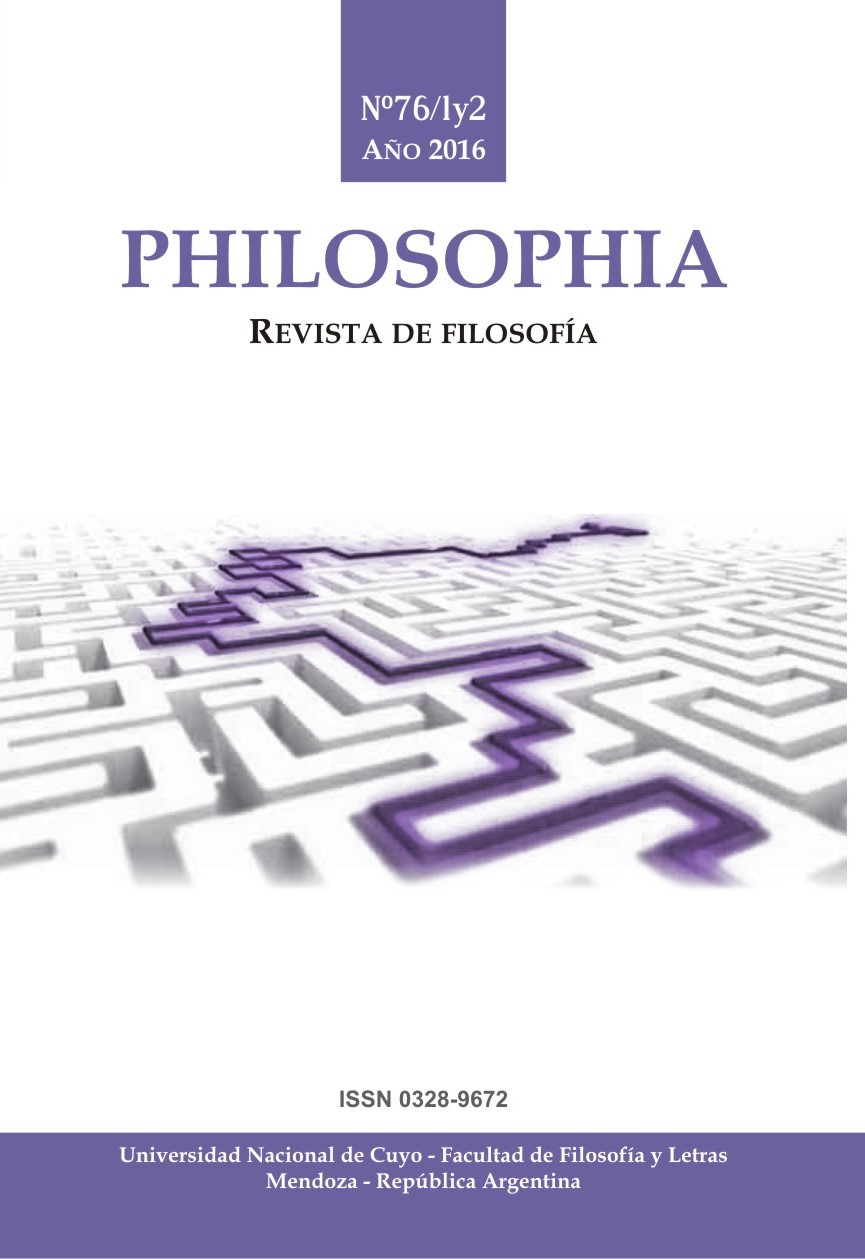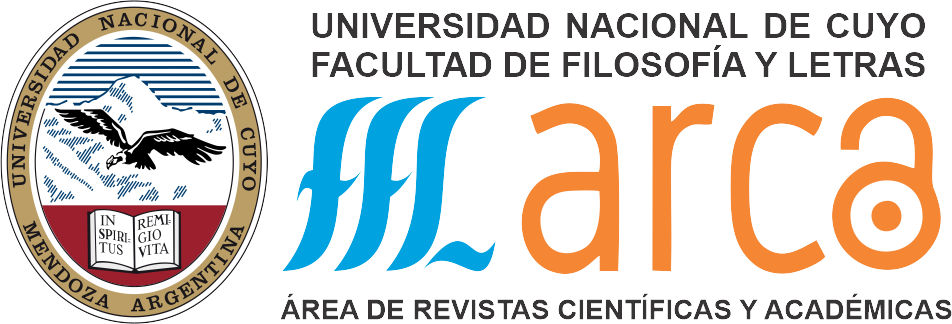La órexis aristotélica como fundamentación ética
Keywords:
Aristóteles, orexis o naturaleza, virtud, hombre incontinente (akratÄ“s).Abstract
Es propósito de este trabajo exponer qué concepto de naturaleza mantener para plantear una ética que hable del bien humano y se relacione con la virtud. Para ello acudo al concepto de naturaleza sostenido por Aristóteles, quien propone la naturaleza como orexis o deseo. Cercanas a este concepto son las disposiciones naturales del hombre, base de la virtud, que convendrá educar para el desarrollo humano. El estudio del hombre incontinente y el continente servirá para ver su contraste con el virtuoso, hombre perfecto y feliz, cuya vida según Aristóteles todos desearíamos poseer.ÂDownloads
Published
How to Cite
Issue
Section
License
Se permite la reproducción de los artículos siempre y cuando se cite la fuente. This work is protected under license Attribution-NonCommercial-ShareAlike 3.0 Unported (CC BY-NC-SA 3.0) You are free to: Share "” copy and redistribute the material in any medium or format; Adapt "” remix, transform, and build upon the material
The licensor cannot revoke these freedoms as long as you follow the license terms.
Under the following terms:
Attribution "” You must give appropriate credit, provide a link to the license, and indicate if changes were made. You may do so in any reasonable manner, but not in any way that suggests the licensor endorses you or your use.
NonCommercial "” You may not use the material for commercial purposes.
ShareAlike "” If you remix, transform, or build upon the material, you must distribute your contributions under the same license as the original.
No additional restrictions "” You may not apply legal terms or technological measures that legally restrict others from doing anything the license permits.
For more information, please visit: https://creativecommons.org/licenses/by-nc-sa/3.0/deed.en






